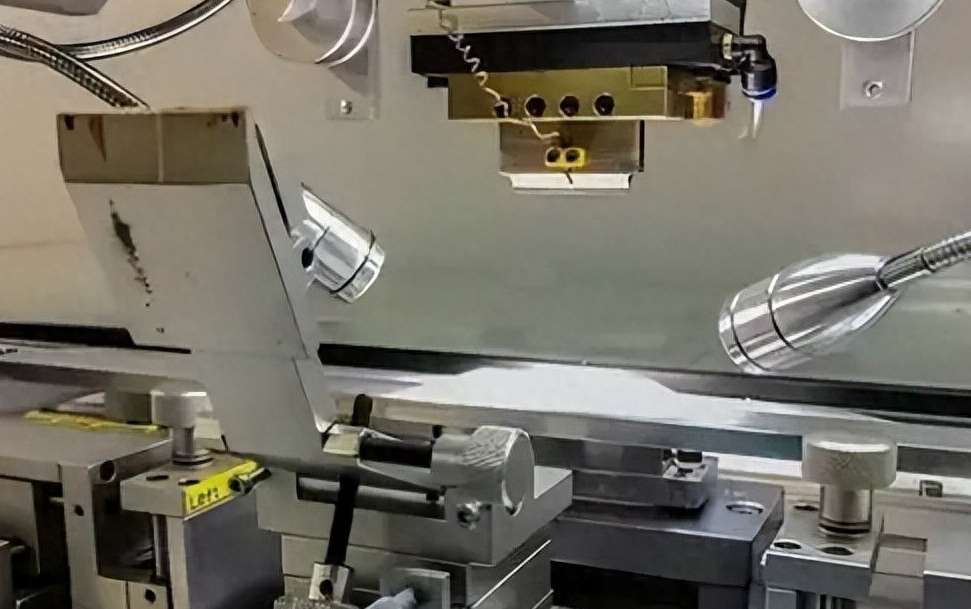Samsung's Chip Unit at a Crossroads
Advertisements
In the dynamic landscape of the semiconductor industry, competition is fierce, particularly in the area of wafer foundries. TSMC (Taiwan Semiconductor Manufacturing Company) has long been the undisputed leader in the global foundry market, renowned for its innovative manufacturing techniques and impressive market share. But as the complexities of technology evolve and the market shifts, a new narrative is emerging, particularly for Samsung, which has traditionally been seen as the second-largest player. Recent reports suggest that Samsung is approaching a critical turning point in its chip foundry business, prompting analysts to reflect on how the tides might be changing in this highly competitive arena.
The foundry market has historically been dominated by TSMC, which has consistently secured more than 50% of the global market share, thanks to its early investments in advanced process technologies like 7nm and below. Samsung, while consistently trailing behind, has managed to hold its position with a market share peaking at around one-third of TSMC’s. However, recent developments indicate that Samsung's stronghold on its market share is slipping. Initial reports forecasted that Samsung maintained over 15% market share through 2022, but as 2023 unfolded, this figure has sharply declined to approximately 9.3%. This substantial decrease raises critical questions about the company's future in a market that appears to be rapidly evolving.

As the semiconductor industry advances, there is an increasing chorus of competition arising from a formidable second tier of players, including GlobalFoundries, UMC (United Microelectronics Corporation), and, significantly, SMIC (Semiconductor Manufacturing International Corporation). While these companies may not yet rival TSMC or Samsung directly, they have executed strategies that have led to impressive growth. Notably, SMIC has shown positive momentum, enhancing its revenue figures significantly and climbing the ranks to become the third-largest chip manufacturer globally. In the first three quarters of this year, SMIC's market share reached 6%, closing in on Samsung’s position by narrowing the gap to just 3.3 percentage points.
The challenges facing Samsung are multifaceted and not easily resolved. One major factor is the plummeting utilization of its advanced process capacities. Due to waning market demand and rapid advancements in technology, Samsung’s initial investments have not translated into greater market presence. As demand for its advanced processing capabilities wanes, the company finds itself in a position where nearly 30% of its production lines need to be halted, a decisive move indicating a significant contraction in its operational scale.
Additionally, Samsung’s lag in the race to innovate in the 3nm process technology has been detrimental. Key clients, particularly from high-performance sectors like Qualcomm and MediaTek, have shifted their allegiance to TSMC for 3nm chip production. This loss not only diminishes Samsung’s revenue potentials but adversely impacts its position in key consumer tech markets, such as smartphones, where processor performance is a critical differentiator.
Worsening the situation further, reports from South Korean media indicate that Samsung may outsource the production of certain Exynos processors to TSMC. Such a development is a severe blow to Samsung’s foundry operations, illustrating how reliance on competitors for manufacturing can undermine its standing in the marketplace. This potential pivots the company from a position of self-reliance to dependency, starkly illustrating the vulnerabilities in its current operational strategy.
Looking forward, the semiconductor industry stands on the brink of decisive transformation. With advancements in mobile communication and the proliferation of artificial intelligence and the Internet of Things, the demand for advanced node processes is expected to rise exponentially. This burgeoning landscape will undoubtedly provide ample opportunities for companies like TSMC and SMIC, who have invested heavily in R&D and technological innovation.
In order for Samsung to navigate its current challenges and reclaim its competitive edge, strategic realignment is imperative. The company's focus must shift to intensifying its investment in research and development, particularly aimed at breaking into the 3nm and beyond technology space. Furthermore, enhancing production management, refining its supply chain logistics, and actively pursuing new market opportunities should be at the forefront of its strategy.
However, amid these challenges, there lies an essential reminder of the interconnected nature of the global market. In an age of global interdependence, isolated success is increasingly a myth; collaboration and knowledge sharing between players in the semiconductor sector are vital. The strains faced by Samsung serve as a cautionary tale, not just for the company, but for the broader industry—highlighting the need for adaptation, cooperation, and innovation in a landscape that shifts perilously fast.
In conclusion, while Samsung navigates the crossroads of opportunity and adversity, the implications reverberate throughout the global semiconductor community, prompting reconsideration of strategies and practices across the board. The next steps taken by Samsung may not only influence its trajectory but could also catalyze broader shifts in the wafer foundry landscape, as all players vie for dominance in an increasingly competitive market.
Leave A Comments